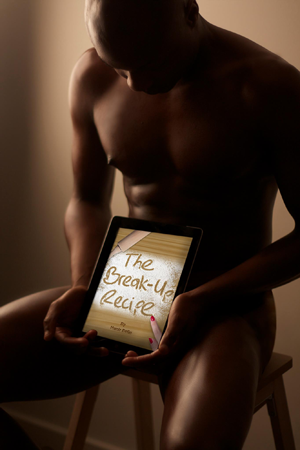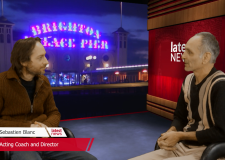Arts and culture from around the world, with Vanessa Austin Locke
Overheard on helicon
Independent recording artists have always been seen as rather cool, generating some of the most exciting and innovative music in the industry, away from the constraints of a record label’s cut and paste recipe for a hit. Indie films enjoy a similar kind of status.

The same is rarely true of the publishing industry, where self-publishing, or as it’s cruelly known, ‘vanity publishing’, is looked upon with the deepest snobbery and suspicion. That is, until fairly recently; a vaguely discernable hint of change has been noted, as authors are beginning to realise that they can actually make more money by going it alone.
An example of one such author is Munir Bello, whose debut novel The Break-Up Recipe has enabled him to quit the day job altogether. Bello, who has a background in sales, was offered three publishing deals by established houses, but none of the offers’ financial terms reflected fair compensation for the work and time he’d put into his novel. So instead of ‘waiting for someone to come along with an offer deserving of the work that’s gone into it’, he put together a marketing plan and got on with the job himself.
“I always wanted to do it my way,” says Bello, who has been featured in The New York Times and has since gone on to write for We Are The City’s Men Uncovered blog. His attitude is refreshing because it’s not desperate, and he’s very much prepared to walk away from a table that so many authors would bend over. “The terms have to be mutually beneficial,” he says, pouring himself another glass of champagne. And it’s this salesman in him that gives him a potentially winning combination. That, a lot of hard work, and a touch of nudity.
Proving that sex sells (as if that needs proving) …
Proving that sex sells (as if that needs proving), Bello’s book went viral when he posed naked with a copy of it. He followed that up by taking to the streets and distributing flyers of this image in person.

He then released a series of short videos about the book online, and before he knew it he had a solid fan base.
Self-publishing used to be rather commonplace, with many of the greats producing pamphlets which garnered acclaim via word of mouth. Of course, it’s quality control that loses out here, but wouldn’t it be nice if we could decide what quality is for ourselves rather than having it done for us? Cream rises naturally after all, so it’s interesting to see publishing return to its egalitarian roots, and the general contempt for self-publishing begin to crack under the reality of what makes financial sense to writers.
Photos: Charles Ogunleye
If you have a recommendation for Vanessa to feature, please email editorial@thelatest.co.uk





















